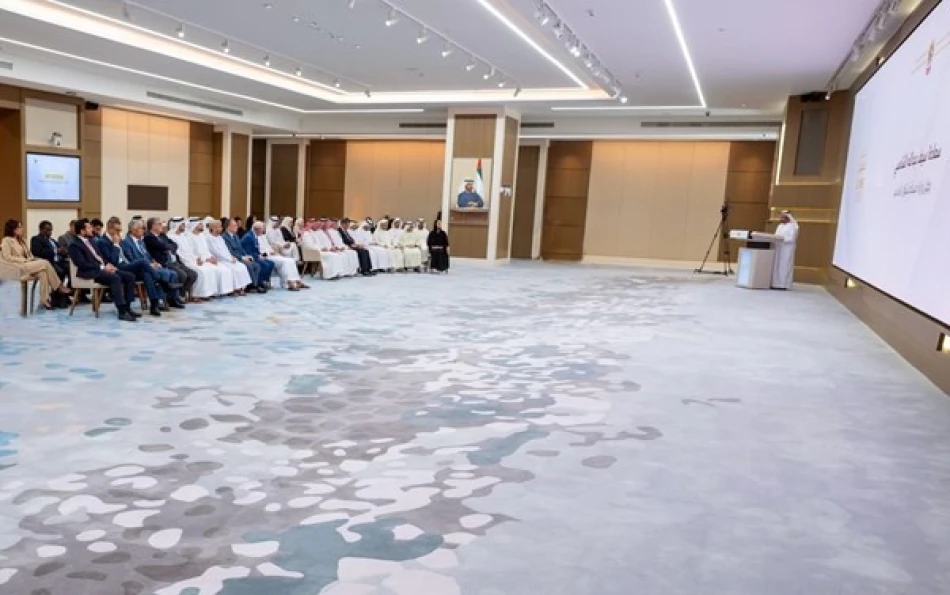
Diplomatic Corps Engagement Summit: Connecting Accredited Missions for 2025
UAE Foreign Ministry Launches Diplomatic Advisory Council to Streamline Government Services
The UAE Ministry of Foreign Affairs has established its first-ever diplomatic missions advisory council for 2025, marking a strategic shift toward collaborative governance that could set new standards for diplomatic service delivery in the Gulf region. The initiative reflects the Emirates' broader push to eliminate bureaucratic bottlenecks while positioning itself as a global model for government efficiency.
Breaking Down Diplomatic Red Tape
The inaugural council meeting brought together senior ministry officials, including Undersecretary Omar Obaid Al-Hossan Al-Shamsi and Mohammed bin Talia, head of government services, alongside ambassadors and diplomatic mission heads accredited to the UAE. This direct engagement represents a departure from traditional top-down diplomatic protocols, instead embracing a feedback-driven approach to service improvement.
The council specifically addressed three core diplomatic services: official delegation visit requests to the UAE, diplomatic immunities and privileges, and international judicial cooperation. These areas have historically been bureaucratic pain points for diplomatic missions worldwide, often requiring multiple approvals and lengthy processing times.
The Broader Government Transformation Strategy
This diplomatic council aligns with two flagship UAE initiatives: the Emirates Program for Distinguished Government Services and the Zero Government Bureaucracy Program. Both programs aim to transform the UAE into what officials describe as a more "flexible and proactive government" by 2025.
Digital-First Approach
The ministry emphasized its transition from traditional procedures to integrated digital experiences that simplify processes, reduce steps, and unify service channels. This mirrors successful digital government initiatives in Singapore and Estonia, countries that have become benchmarks for e-governance efficiency.
Regional and Global Implications
The UAE's move comes as Gulf states increasingly compete to attract international businesses and diplomatic presence. Saudi Arabia's Vision 2030 and Qatar's National Vision 2030 similarly emphasize government service modernization, but the UAE's focus on diplomatic services specifically could provide a competitive edge in hosting international organizations and regional headquarters.
Setting New Diplomatic Standards
By institutionalizing feedback from diplomatic missions, the UAE is essentially crowdsourcing improvements to its international relations infrastructure. This approach could influence how other nations manage diplomatic services, particularly as countries seek to enhance their soft power through superior service delivery.
What This Means for Stakeholders
For diplomatic missions, the council promises faster processing times and reduced administrative burden, potentially making the UAE a more attractive location for regional operations. The systematic analysis of feedback and implementation of solutions suggests the ministry is committed to measurable improvements rather than symbolic gestures.
The initiative also signals the UAE's confidence in its governance model, with officials explicitly stating their intention to export this experience to other countries. This positions the Emirates not just as a regional hub, but as a consultant for government modernization—a potentially lucrative soft power export in an era where efficient governance has become a competitive advantage.
The success of this diplomatic advisory model will likely determine whether the UAE expands similar councils to other government sectors, potentially reshaping how the federation delivers public services across all ministries.
Most Viewed News

 Layla Al Mansoori
Layla Al Mansoori






